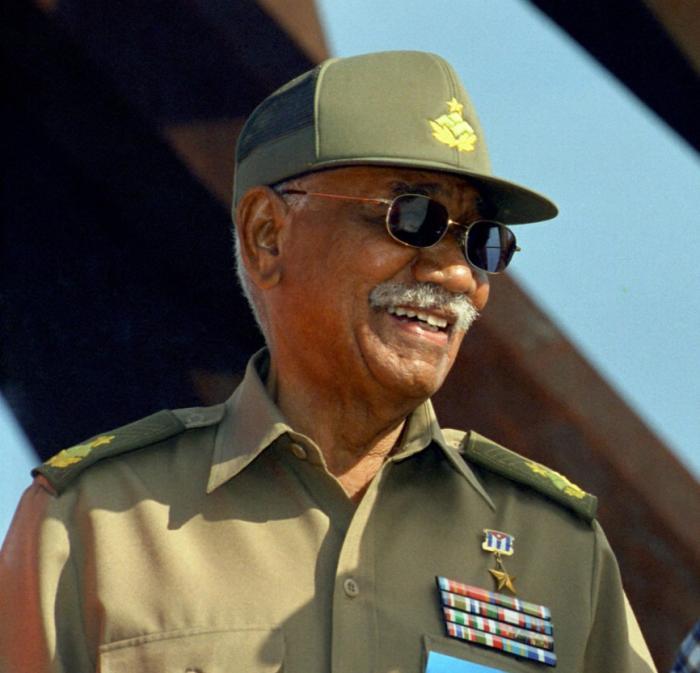
A wide smile and a clean look, a character tempered between righteousness and charisma, a lot of humility and no presumption; an olive green uniform, art in his veins and the Revolution in his chest make up the fond memory of Commander Juan Almeida Bosque.
He could not be otherwise. Coming from the people, Almeida became by own merit a combatant admired and loved by that same people, whose pains and subjugations led him to be one of the mans who assaulted the Moncada Barracks. As a result of this, he stoically endure the humiliations of the political prison, crossed the seas to live in exile and later returned as an expeditionary of the Granma yacht, before going up to the Sierra to conquer the truncated freedom of his people.
In the mountains, under the incessant shrapnel and the real risk of losing his life in action, the son of Juan Almeida and Rosario began to become indispensable for the future Revolution.
An anecdote from the early days after the triumph of January 1959 would confirm this. A friend of his youth, named Ventura Manguela, asked the then Commander of the Rebel Army how he, without being an "educated person," held such a high rank in the victorious army.
His answer was blunt: "Ventura, I never came second in a combat and I never left first."
That was the essence of the simple and self-sacrificing young man who, before becoming a rebel and revolutionary, worked as a ticket collector, cleaner and bricklayer to help his family survive in the midst of the misery and barbarism imposed by the tyranny of Fulgencio Batista.
Later, when socialist Cuba required his efforts as a member of the Central Committee and the Political Bureau of the Party, or as a deputy to the National Assembly, vice president of the Council of State, or at the head of the Combatants Association, Almeida remained the same, made of deeply rooted nobility, unwavering loyalty to Fidel and Raul, and a wealth of charisma.
And the fact is that, simple and modest like few others, neither military ranks nor political positions ever dented the sensitive spirit of the leader who used to ride in his car with the window down, or who preferred to listen closely to the concerns of the people, rather than read a "sugar-coated" report. He was just the same Commander who also enjoyed the sea and nature, singing and literature.
His artistic interests translated in more than 300 songs and a dozen literary works, which are part of that other inescapable legacy of the also Hero of the Republic of Cuba. Art and his responsibilities in the Revolution converged in perfect harmony, as he expressed it in his emblematic song La Lupe, "And now that I am going away/ to fulfill my duty,/ that my land calls me to win or to die,/ don't forget me, Lupita; oh, remember me".
Fourteen years after his physical departure, Cuba honors this poet-musician-fighter and friend with the convicition that nobody surrenders here!*
Translated by ESTI











